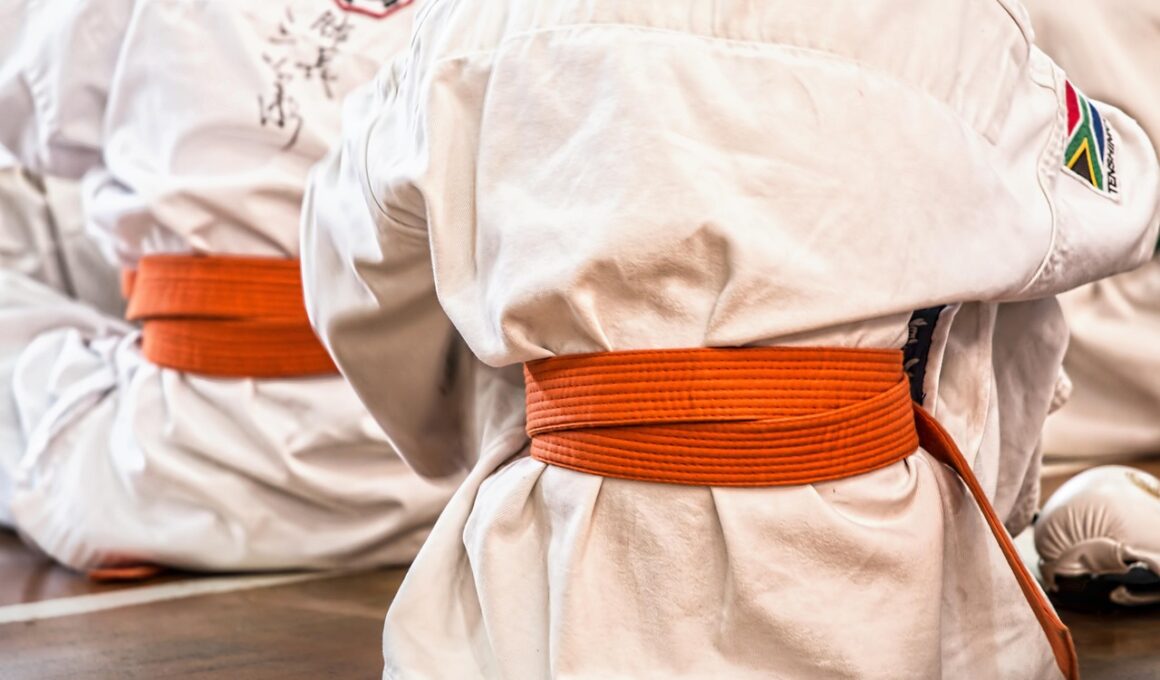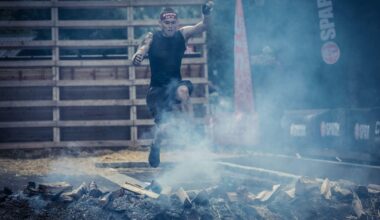Common Mistakes to Avoid While Training Jeet Kune Do
Training in Jeet Kune Do can immensely develop your martial arts skills, provided you avoid common mistakes. One of the crucial errors practitioners often make is neglecting the fundamentals. Instead of focusing solely on flashy techniques or advanced moves, it’s essential to hone basic skills consistently. This includes stances, footwork, and striking accuracy. Practicing these fundamentals lays a solid foundation for your overall progress. Additionally, many students tend to mimic their instructors without fully understanding the mechanics behind each movement. While imitation can be a useful learning tool, grasping the ‘why’ behind techniques ensures they are applied effectively in real scenarios. Moreover, neglecting to practice different ranges—close, medium, and long—can hinder fluidity and adaptability in sparring. A well-rounded understanding of distance management enhances your ability to transition between various fight dynamics. Lastly, students may also rush their training schedule without proper rest and recovery. Overtraining can lead to injuries and burnout, stalling your growth in the martial art. It’s vital to recognize the importance of rest as you embark on this martial journey.
Another common mistake involves failing to embrace the philosophy of Jeet Kune Do. This martial art emphasizes adaptability, which means being open to learning from various styles. Students may become too rigid in their approach, adhering stringently to prescribed techniques rather than exploring their own. Exploring other martial arts disciplines helps you gain perspectives that can enhance your training. Furthermore, neglecting to spar with diverse partners leads to a skewed understanding of your capabilities. Engaging with practitioners of different styles can present various techniques you might not encounter in your normal class setting. This experience broadens your adaptability in unpredictable fight scenarios. Additionally, focusing too much on strength rather than timing can also cause issues. Effective martial arts relies on strategy and timing potentially more than sheer power alone. Building muscle is crucial, but understanding how and when to apply that strength is even more vital. Lastly, many Jeet Kune Do students overlook the importance of mental training. Just as physical training builds your body’s capabilities, mental preparation shapes your resilience and focus. Incorporating meditation and visualization can significantly enhance your overall performance on the mat.
Training Emphasis on Sparring
One of the most fundamental aspects of Jeet Kune Do is sparring, and neglecting this can be detrimental. Some students might prefer the comfort of practicing alone, focusing solely on solo drills. While these drills are essential, real combat scenarios require interaction with a live opponent. Engaging in controlled sparring helps you apply techniques effectively and deal with unpredictable movements. Moreover, many students tend to rely solely on their dominant techniques, failing to develop a diverse toolkit of skills. While it’s important to master your favorites, a versatile arsenal allows better adaptability to different situations. This versatility not only enhances your performance but also strengthens your strategic approach. Another common pitfall is overthinking during sparring sessions. Free combat at times can become rushed efforts filled with unnecessary judgments. Instead, trusting your training and instincts is vital for effective execution. Practicing under stress simulates real fight conditions, preparing you for actual confrontations. Also, failing to seek feedback from peers or instructors can inhibit improvement. Honest critiques provide valuable insights into your techniques and strategy. Embracing constructive criticism is a sign of growth and dedication to mastering Jeet Kune Do.
When training in Jeet Kune Do, students often focus solely on physical movements at the expense of developing an understanding of the art’s philosophy. Bruce Lee established this martial discipline based on principles that extend beyond mere combat techniques. Knowledge of these philosophies enriches your training experience, allowing for deeper comprehension of your actions. Ignoring the mental aspect detracts from developing the necessary mindset during practice and real confrontations. Similarly, many martial artists underestimate the importance of conditioning specific to martial arts. Regular workouts are excellent, but conditioning should be tailored to optimize performance in Jeet Kune Do. Exercises that enhance speed, agility, and endurance are invaluable during sparring sessions. Furthermore, students frequently neglect the importance of proper equipment. Using appropriate gear enhances safety during training and can improve your performance. Be sure to invest in quality gloves, shin guards, and a mouthguard, as these can prevent injuries that hinder your practice. Lastly, failing to establish training goals can create a sense of aimlessness in your practice. Setting specific, measurable goals keeps you focused and motivated, ensuring continuous improvement rooted in your Jeet Kune Do journey.
Self-Analysis and Continuous Learning
Engaging in self-analysis is often a neglected aspect of martial arts training, especially in Jeet Kune Do. Many practitioners focus on scoring points in sparring rather than understanding their weaknesses and strengths. Acknowledging areas for improvement lays a foundation for targeted training. Lack of self-review can lead to repeated mistakes without suitable corrections. Embracing a learning mindset, along with recognizing the need for growth, is essential for progression. Additionally, some students fail to create a supportive training environment. Surrounding yourself with encouraging partners and instructors fosters motivation and commitment. Training alone can often lead to stagnation, so finding a supportive team enhances learning outcomes. Furthermore, some practitioners overestimate their skills, leading to a false sense of confidence. It’s crucial to stay humble and recognize that mastery is a continuous journey. Striving for improvement fosters a positive attitude. Another mistake involves insufficient rest days, as mentioned earlier. Purposeful breaks restore mental and physical vigor, enhancing overall training effectiveness. Students might feel guilty taking a break, but understanding that recovery is a vital part of the process is key. The journey of mastering Jeet Kune Do requires hard work, dedication, and patience along the way.
A common pitfall many students encounter while training in Jeet Kune Do is having unrealistic expectations. Progress in martial arts takes time, and comparing your journey to others can lead to frustration and disappointment. Each practitioner learns at their own pace, and patience is essential for growth. Embracing the journey and celebrating small milestones boosts morale and enthusiasm during practice. Moreover, many students make the mistake of solely relying on their instructors for knowledge without taking an active role in their learning. Being proactive by seeking additional resources, such as books or online tutorials, allows for a broader understanding of techniques and concepts. This independent learning promotes greater mastery over time. Additionally, skipping warm-ups and cool-downs is a mistake that can lead to injuries. Initiating and concluding sessions with appropriate routines helps prevent strain and facilitates recovery. Besides physical preparation, staying informed about the latest training methodologies can also prove beneficial. Constantly updating your knowledge ensures you remain adaptable to evolving methods. Lastly, not having fun during training can lead to burnout. Enjoying the practice keeps your passion alive and aids in mastering Jeet Kune Do effectively every step of the way.
Conclusion: Mastering the Art
In conclusion, avoiding common mistakes while training Jeet Kune Do can significantly impact your journey to mastery. It’s essential to embrace the fundamentals, explore the art’s philosophy, and engage in proper sparring practices. Adapting to diverse scenarios through continuous learning and maintaining a supportive training environment is vital. Additionally, being open to feedback and self-assessment fosters improvement. Keep in mind that every practitioner learns at their own pace, and developing patience is key to avoiding frustration. Incorporating targeted exercises aligned with your martial practice ensures optimal conditioning. Remember, recovery is just as critical as training intensity in your martial journey. Encourage an environment where fun coexists with seriousness; this balance keeps motivation high while ensuring effective skill acquisition. Always approach practices with an open mind and a willingness to explore uncharted territories within your training. As you engage on this path towards mastery in Jeet Kune Do, remember that dedication and humility will accompany you to success. This journey enhances not only your martial capabilities but also grows your confidence and resilience. With commitment and these strategies in mind, you will be well-equipped to navigate your training journey.
As you continue along your path, always remember that Jeet Kune Do is about personal development as much as it is about physical fighting techniques. By maintaining focus on the aspects discussed in this article, you will be able to avoid common mistakes and truly excel in your martial arts journey. Ensure that every session is productive and enriching, shaping you into a versatile and skilled practitioner.


